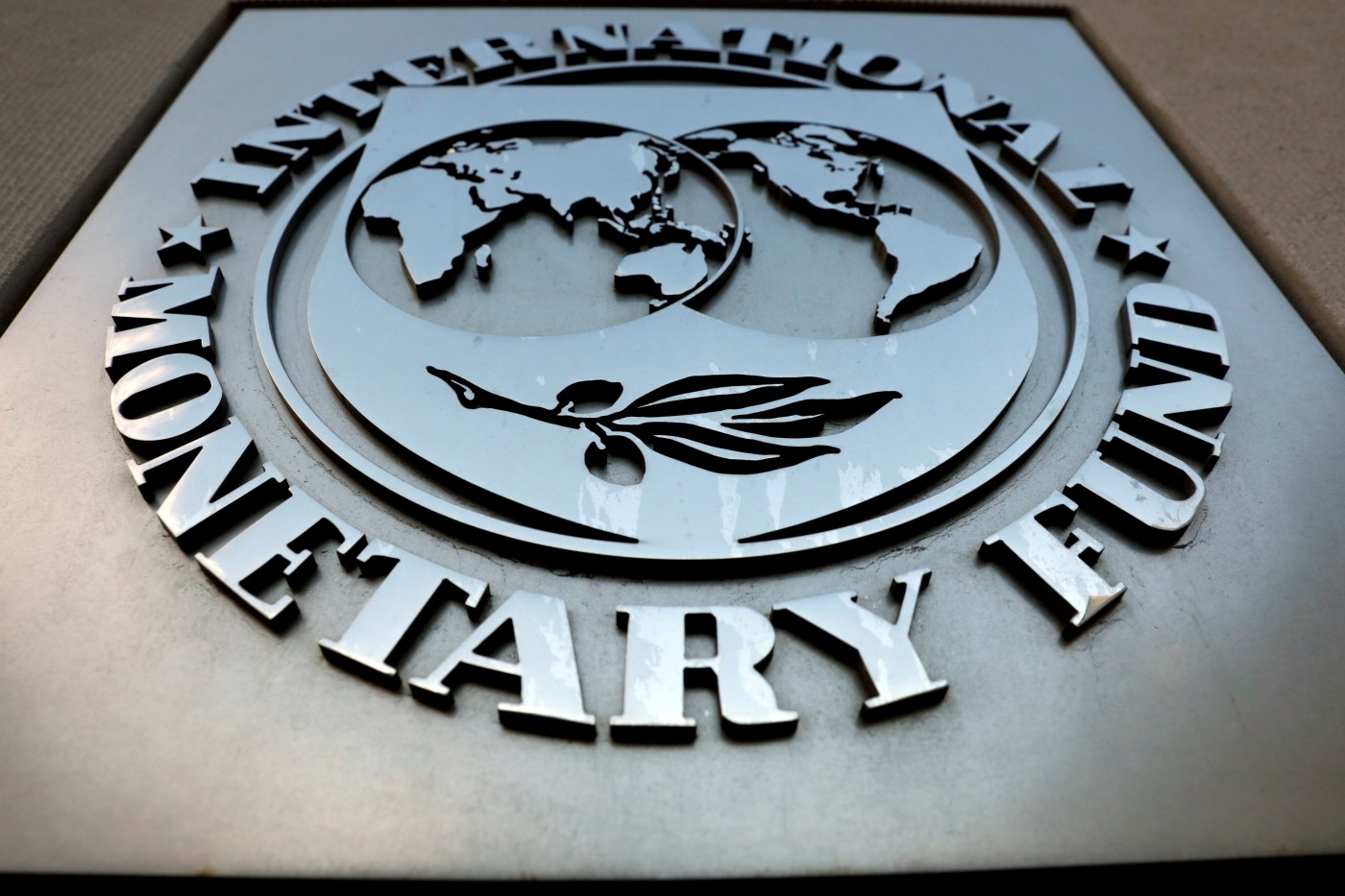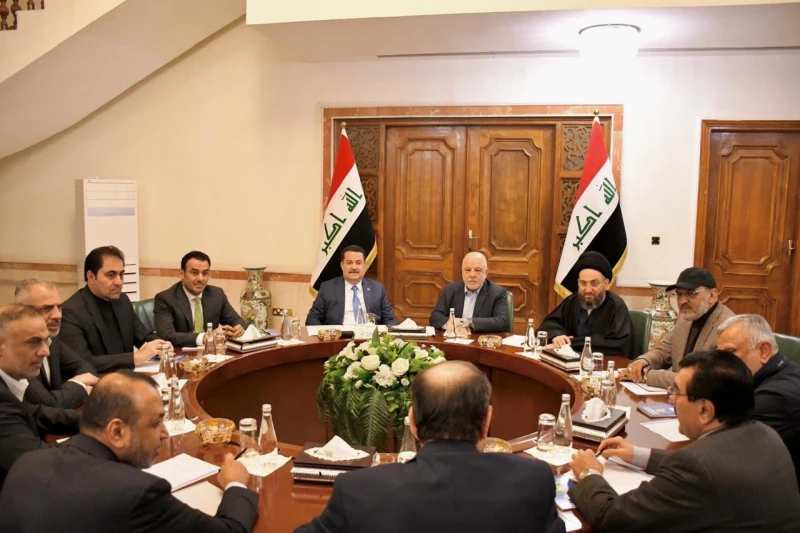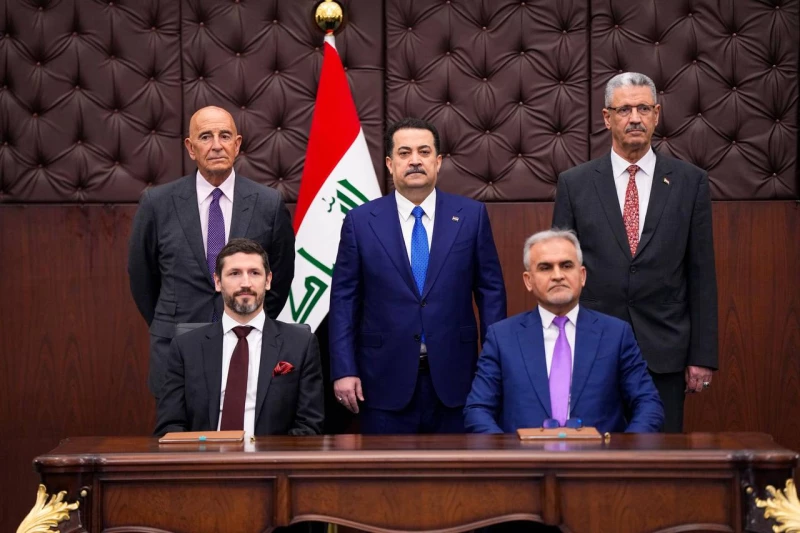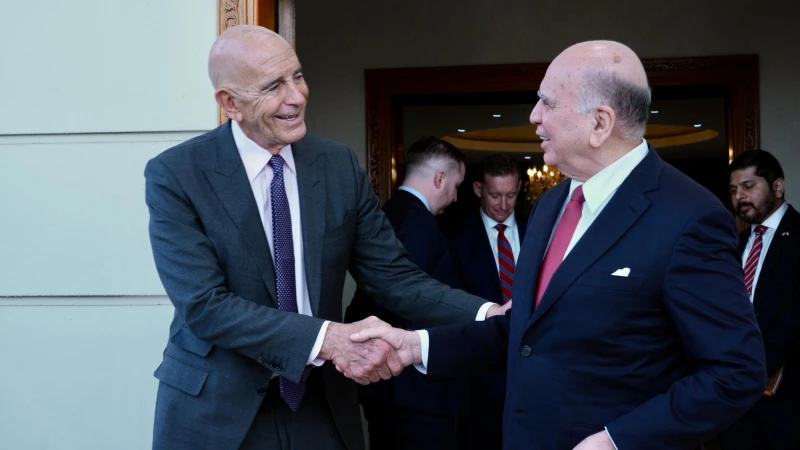BAGHDAD, Iraq – The International Monetary Fund (IMF) has voiced concern over the “large fiscal expansion” in Iraq’s three-year budget law and noted that cuts to oil production in the country will likely lead to a drop in its GDP in both 2023 and 2024.
According to a December 19 press release, an IMF team led by Jean-Guillaume Poulain met on December12-17 with Iraqi authorities in the Jordanian capital to discuss economic developments and policy plans.
Two key issues seem to have been the continued closure of an oil pipeline between Turkey and Iraq since March and a budget passed by Iraq in June for the next three years.
The pipeline closure is a major point of contention between the central government in Baghdad and the Kurdistan Regional Government (KRG) and has reportedly led to billions of dollars in losses.
As concerns the budget, the “large fiscal expansion, including a substantial increase in public hiring and pensions creates permanent spending that will put pressure on public finances over the medium term,” the press release stated.
Both of these have the potential to create serious risks for the Iraqi economy, say the IMF experts.
Oil and public sector spending
Iraq’s economy depends largely on oil revenues. Western sanctions on Russia over its invasion of Ukraine as well as oil supply shortages led to a sharp rise in oil prices in 2022, leading to Iraq seeing its oil revenues surge from $75.5 billion in 2021 to $115 billion in 2022.
Average price per barrel rose at that time as high as $100.
As of early December 21, in contrast, both Brent crude futures and US West Texas Intermediate crude were under $80 per barrel and falling slightly despite concerns over global trade resulting from conflict and shipping disruptions in the Middle East.
That windfall from oil revenues last year in turn enabled the government under Prime Minister Mohammed Shia al-Sudani - who was sworn into office in October 2022 over a year after the elections in which the parties that backed him won a lesser share of votes but were ultimately allowed to form a government - to create the largest budget in Iraqi history.
The largest part of the budget is expected to go towards paying salaries for state employees and pensions.
“The three-year budget approved in June 2023 marked a shift in Iraq’s budgeting practice, envisaged to improve fiscal planning and continue important development projects over the medium term,” the December 19 IMF press release stated.
“Despite a late start of budget implementation, the fiscal balance is expected to shift from a large surplus in 2022 to a deficit in 2023. Staff projects that the deficit would widen further in 2024 reflecting the full year impact of recent measures,” it warned.
“Ensuring fiscal sustainability, in context of uncertain outlook for oil prices, requires gradually tightening the fiscal policy stance while safeguarding critical infrastructure and social spending needs,” the IMF experts stressed.
Losses continue from pipeline closure
“Against the background of a large fiscal expansion, non-oil GDP is expected to grow by 5 percent in 2023. Continued budget execution should help sustain strong non-oil growth in 2024. However, lower oil production, following the closure of the Iraq-Turkey pipeline and OPEC+ production cuts, will reduce overall GDP growth in 2023 and 2024,” Poulain said in a statement issued at the end of the mission.
In late March, Turkey halted the transportation of Kurdish oil exports through a pipeline between the two countries after an international arbitration court in Paris ruled that Ankara had violated a clause of a 1973 agreement between the two countries.
In October, the Association of the Petroleum Industry of Kurdistan (APIKUR) stated that the Iraqi government as well as the Kurdistan Regional Government (KRG) and international oil companies had lost a total of $7 billion in revenues since the closure of the pipeline.
Despite multiple meetings between the central government and the KRG as well as talks with Turkey, the pipeline remained closed as of late December.
Prime Minister Sudani said in October that his government was ready to resume the exports, citing a “good understanding” between the government and oil companies.
Kurdistan Region President Nechirvan Barzani stated in previous months that the resumption of oil exports to Turkey through this pipeline depended on Baghdad and not Turkey.
Media reports and local sources in the Kurdistan Region state that this closure has led to the loss of many jobs.
“Structural reforms to spur private sector led economic diversification and job creation remains pivotal for sustainable and inclusive growth,” the IMF statement added.
“Priorities include creating a level playing field for the private sector through banking and electricity sector reforms, reducing distortions in the labor market, and continuing efforts to enhance governance and reduce corruption,” it added.



 Facebook
Facebook
 LinkedIn
LinkedIn
 Telegram
Telegram
 X
X


